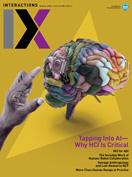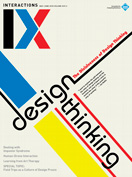Authors:
P. Dourish
I'm always a little shocked by just how little space there is in typical academic life for reading. Isn't that meant to be one of our core activities, along with those other seemingly extraneous activities, writing and thinking. These days, other than a few luxurious days at the end of each academic year or over the holidays, I worry that I do most of my reading on airplanes, which is scarcely the space most conducive to deep intellectual engagement. Fortunately, I've packed a few books lately that are more than absorbing enough to hold my attention over in-flight announcements about the seat-belt sign and customs procedures.
UA 839: Los Angeles to Sydney... Machine Learners: Archeology of a Data Practice By Adrian Mackenzie (2017). Machine Learners is a remarkable exploration of the practices of machine learning. Adrian Mackenzie is a sociologist of science. His exploration here of the algorithms and practices of contemporary machine learning is informed not only by years of close study and ethnographic participation with data scientists, but also by sitting down and writing the code that implements and uses many of the algorithms himself. Consequently, when he talks about machine learning, he talks about both the abstract algorithms and the programming languages, visualization packages, datasets, and computational platforms that support machine-learning research as a practice. It's an attempt to get inside the practice to understand not just what machine learning is, but also how it shapes and structures the world of its practitioners (which increasingly means all of us, enrolled as we are in data-fied worlds). It's rare to find a book that includes Python code and post-structuralist theory on the same page, and I'm not sure that I'd trust anyone other than Mackenzie to do it, but the result is a tremendous intellectual achievement—rich and generative.

UA 168: Washington to Lisbon... The Unbanking of America: How the New Middle Class Survives By Lisa Servon (2017). Fintech (financial technology) and novel payment systems are big topics in HCI and beyond right now. Servon asks a prior question concerning the kinds of banking services that people use. Why would anyone choose to use a payday lender or a check-cashing service in the face of usurious interest rates? Isn't that an irrational decision? Well, no, as it turns out. Based on ethnographic work as a teller at two different alternative financial providers, Servon shows how payday lenders and the like in fact offer forms of flexibility upon which low-income workers depend, people for whom (say) the fact that an ATM will only dispense cash in $20 bills is a problem. Or for whom overdraft charges turn out to be a much more costly form of "interest payment" than those imposed by payday lenders. This has some significant implications for the reach of novel payment systems.

UA 127: Dublin to Washington... The Great Mistake: How We Wrecked Public Universities and How We Can Fix Them By Christopher Newfield (2016). Public universities are in crisis in the U.S., although that's not to say that the situation is somehow novel. Christopher Newfield is a professor at UC Santa Barbara who has served in UC-wide academic senate positions responsible for planning and budgets. Here, he lays out the decades-long histories that brought us to our contemporary moment, with a particular emphasis on the way in which public universities gave up explaining their significance in terms of public good—the mutual benefits that accrue when education is available to all—and started instead to speak the language of private goods—education as investment in the self, to be recouped in future earnings, and research as an engine of prosperity. Associated with this was a shift away from public funding to private funding of various sorts—from students themselves and from corporations. In the face of public disinvestment, the question is how we can recover a notion of public good. It's a sobering read, and frankly often quite depressing, though it does provide some useful tools for thinking (and speaking) differently about higher education.

Architectural Intelligence: How Designers and Architects Created the Digital Landscape By Molly Wright Steenson (2017). This one has only just arrived, but I definitely couldn't wait until stepping onto another plane to read it. This book traces the complicated and entwined histories of artificial intelligence, cybernetics, and architectural design and theory. There is a rich and complex tapestry here, incorporating the Macy conferences, the early history of the MIT Media Lab, pattern languages, and design tools. Tracing this conjunction through interviews and archival work, the book explores why "information architecture" is no casual metaphor, and unpacks some of the intellectual history of our notions of the relationships between design, theory, and practice.

Paul Dourish is Chancellor's Professor of Informatics and associate dean for research in the Donald Bren School of Information and Computer Sciences at UC Irvine. He is an ACM Fellow and a member of the CHI Academy. His most recent book is The Stuff of Bits: An Essay on the Materialities of Information (MIT Press, 2017). [email protected].
Copyright held by author
The Digital Library is published by the Association for Computing Machinery. Copyright © 2018 ACM, Inc.








Post Comment
No Comments Found